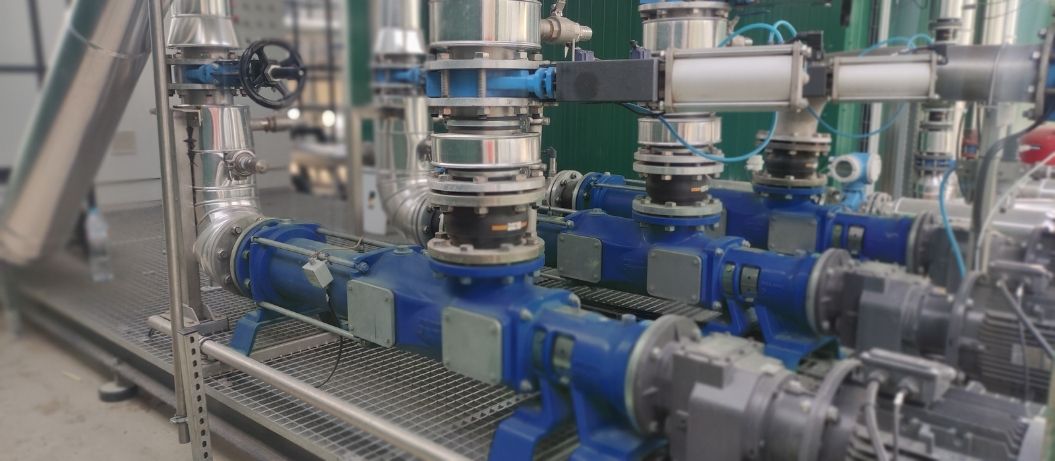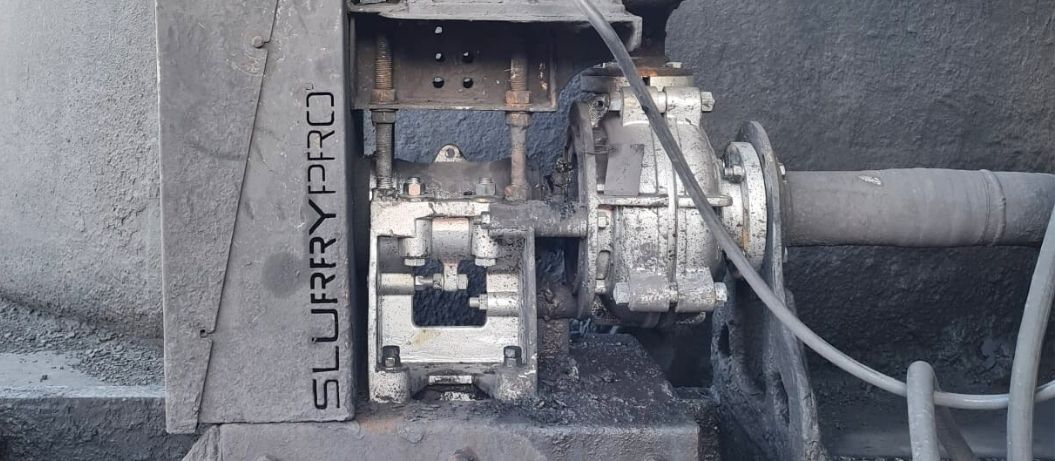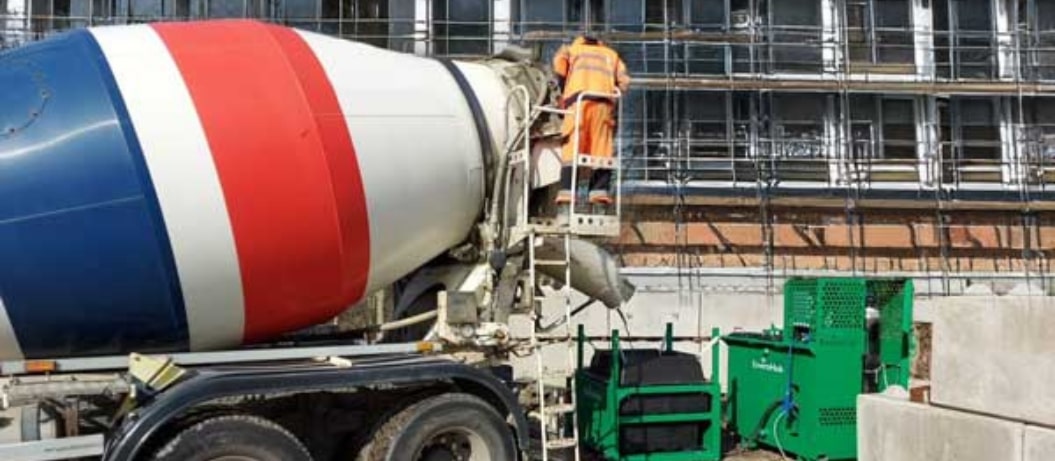Progressive cavity pumps (PC pumps) play a crucial role in various industries, including wastewater management and manufacturing across the UK. To maintain their high performance and cost-efficiency, operators need to implement strategies to ensure that these pumps run smoothly, remain cost-effective to operate, and avoid unexpected downtime. In this article, we highlight five actionable ways to optimise your progressive cavity pump efficiency.
1. Establish a regular proactive maintenance schedule
Well-maintained PC pumps generally operate more efficiently and reliably, maintaining consistent flow rates and pressure. Your regular maintenance routines should focus on inspecting and replacing worn components, such as the rotor and stator.
The interaction between these two components, in particular, is the key to efficient long-term pump performance. Over time, wear on the stator and rotor’s sealing line creates slip, reducing pressure and flow, while increasing energy consumption. As stator wear is responsible for more than twice the number of failures compared to rotor wear, closely inspect both components if you experience reduced flow or pressure. You may be able to get more lifetime out of the existing rotor, saving money on part replacements. However, when putting the rotor and stator together, it should be a tight fit for optimum performance and energy efficiency.
Tip: Keep an inspection log to monitor rotor and stator wear rates and plan replacements proactively according to your usage rates and operational patterns.
2. Choose wear-resistant and abrasion-resistant materials
Material selection significantly impacts a pump’s performance and lifespan. This is because the tight interference fit that is necessary between the steel rotor and the elastomer stator makes material choice critical.
Factors such as abrasion level, temperature extremes and oxidising or other corrosive media require a careful selection of compatible steel and elastomer.
High carbon content steel, such as ST 52 grade, has high resistance to corrosive and oxidative media. Of the two main grades of Stainless steel, grade 316 has greater resistance to chlorine, salt and acids than grade 304.
Nickel plating provides good protection from corrosion and oxidising substances, but can wear off if hard abrasives are entrained in the media.
The outer body of pumps is usually powder-coated to provide long-lasting pumps in industrial environments. Toro-Kronoa T-Line PC pumps are often used in power generation plants, so they come as standard with a powder coating that tolerates sulphur dioxide. A cataphoretic treatment step can be added for pumps destined for high-salinity environments such as outdoor coastal zones and maritime use.
The best elastomer stator material for your application depends on temperature range, solvent compatibility and abrasiveness. High abrasive sludges will benefit from wear-resistant materials designed to withstand abrasive elements, such as grit, shell fragments or broken glass. Commonly used wear-resistant materials now include nitrile rubber, natural rubber, and polyurethane (PU). Manufacturers are using these advanced materials and optimised component clearances to improve sealing performance and reduce slip, boosting the efficiency of progressive cavity pumps.
Tip: Consult with your supplier about material options tailored to abrasive/corrosive applications to ensure long-term reliability.
3. Focus on accurate installation
Proper, professional installation ensures that the PC pump operates as it was engineered to do. A correctly installed progressive cavity pump maintains optimal sealing, minimises premature wear on components, prevents rapid efficiency losses, and reduces the risk of an unexpected breakdown.
Most PC pump manufacturers focus on precisely machining the rotor and stator for consistent geometric alignment. This means that any deviation caused by poor installation can compromise the pump’s tolerances, resulting in increased wear, reduced flow rates, and higher operational costs. A well-made rotor and stator take effort and time to fit, due to the amount of ‘clamp’ that gives them their effectiveness and pressure capability.
Tip: Use manufacturer-provided guidelines to calibrate your pump during installation and avoid rushed procedures.
4. Make full use of monitoring and diagnostic capabilities
Modern monitoring technologies give you the real-time data your engineers need to detect issues at an early stage before they escalate. Tracking indicators such as pressure, flow, or signs of slip can signal wear in the rotor-stator mechanism.
For quick diagnostics, operators increasingly rely on tools like the “Closed Valve Test,” which measures pump wear without having to dismantle it. These proactive health checks enable you to address efficiency issues early, minimising downtime and reducing unexpected maintenance costs.
Tip: Consider integrating pressure sensors and isolation valves to aid performance checks and maintenance. Diagnostic software can monitor pump performance continuously and even remotely.
5. Train your team in operating best practices and visual inspections
Your pump’s efficiency doesn’t just depend on its mechanics—it also hinges on the skill of the people operating and maintaining it. Properly trained staff reduce operational errors and help to optimise pump performance.
In particular, operators should understand the pump’s key components and how they work within the system, including the importance of correct lubrication. Familiarity with the pump’s Technical Data Sheet also ensures quicker troubleshooting and maintenance decisions. Specifiers of pumps, such as process engineers, will benefit from knowledge of flow dynamics, different pump designs, and build options such as universal joints (e.g., pin joint vs. Cardan joint), and material compatibility.
Tip: Invest in regular training sessions and educational resources to upskill your team and foster a proactive maintenance culture. Atlantic Pumps offers free and discounted pump training that can be tailored to your needs.
What next?
An optimised progressive cavity pump performs more efficiently and also saves your operation time, energy, and money.
Atlantic Pumps are here to help you maximise efficiency, whether that be optimisations of your existing pumps, or replacement units that are built for your operating environment. If you’re looking to match your application with optimal equipment, please contact one of our experienced team members today for practical decision-making support.
You may also want to check out our free, downloadable guides.
Want to learn even more about PC Pumps?
Explore our free PC Pump Webinar Series for expert insights, practical tips, and case studies to boost your efficiency.
We also take a sustainable approach to our work and are committed to reducing energy waste from pumps. Our expert knowledge allows us to reduce energy usage by 20% on the average site!
Call us today on 0808 196 5108 for more information.
 August 20 2025
August 20 2025 5 min read
5 min read


